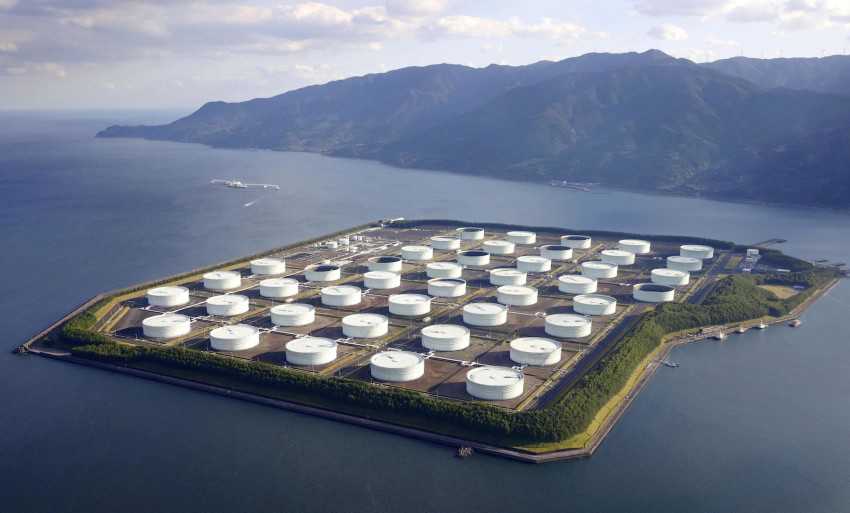Japan to release hundreds of thousands of kiloliters of reserve oil

Japan will release hundreds of thousands of kiloliters (several million barrels) of crude oil from its emergency reserves, industry minister Koichi Hagiuda said on Wednesday, as the country seeks to address rising prices in tandem with the United States and other major energy-consuming countries.
Hagiuda told reporters the timing of the release is still "under consideration," adding, "We will be in step with the United States and other nations concerned."
"The stability of oil prices is important in realizing an economic recovery," the minister said during his visit to the city of Kumamoto in southwestern Japan.
The Ministry of Economy, Trade and Industry said it will swiftly release the oil as soon as preparations for bidding and other conditions are finished.
Earlier in the day, Prime Minister Fumio Kishida announced the measure in what will be the first time Japan has tapped state-owned reserves to lower prices.
"Japan has decided to act in tandem with the United States and sell a portion of the state-owned stockpiles in a manner that does not violate the oil stockpiling law," which limits release for purposes such as responding to disasters and political turmoil overseas, said Kishida.
So as not to violate the law, Tokyo plans to release reserves in excess of its target of storing enough oil for 160 days of consumption.
Japan's announcement came after the White House said Tuesday the United States will release 50 million barrels of oil from emergency reserves in coordination with other countries, including China and India.
The measure was unveiled as surging gasoline prices, and other fuel products have hit households and companies already struggling with the impact of the coronavirus pandemic after the Organization of the Petroleum Exporting Countries and its allies, known as OPEC Plus, repeatedly ignored calls for more oil.
Despite the decision by the countries, oil prices rose in Tokyo amid doubts about the effectiveness of the move as the amount of oil they are to release is only worth several days of consumption, as well as speculation that it could prompt OPEC Plus to limit output when they hold a ministerial meeting next month.
At the Tokyo Commodity Exchange on Wednesday, Middle East crude oil futures sharply rebounded, with its benchmark briefly jumping 3,280 yen ($28.5) per kl to 55,240 yen, its highest level in roughly two weeks.
Japan's past decisions to tap reserves were to address supply concerns following natural disasters and overseas political turmoil. So far, the country has implemented releases five times, including in the wake of the Gulf War in the early 1990s and the massive earthquake and tsunami in northeastern Japan in March 2011.
While the Japanese government has been hesitant to tap into its stockpiles as it could deplete reserves on hand for natural disasters, a senior industry ministry official said earlier it was "not an option" to refuse the U.S. request.
Japan, which relies on oil-producing countries in the Middle East for around 90 percent of its consumption, started keeping crude oil reserves in the 1970s.
Japan has three different types of oil stocks -- state-owned, reserves held by companies and those jointly stored domestically with oil-producing countries.
As a member of the International Energy Agency, the Japanese government is obliged to maintain oil reserves equal to 90 days of net imports in the previous year, while the quantity of private emergency stocks should be more than 70 days of its oil consumption in the previous year, according to Japanese law.
As of the end of September, Japan had reserves for 242 days of domestic consumption, of which 145 days' worth were state-owned and 90 days held by the private sector, with the remaining volume jointly stored with oil-producing countries, according to the latest government data released this month.
Previous Story
- Oil selloff intensifies on Covid fears and risk...
- Is it too late to boost your exposure...
- Adipec 2021: Oil and gas industry needs more...
- Aramco's entrepreneurship arm Wa'ed invests $507,000 in B2B...
- Dubai's business conditions hit two-year high in October...
- European markets start the new trading week on...
- Stanford almuni create prototype to strengthen power grid...